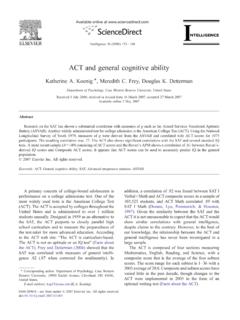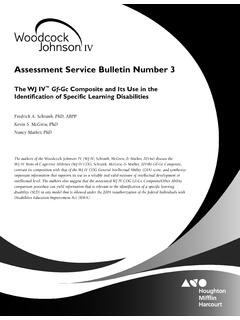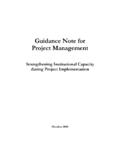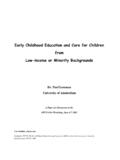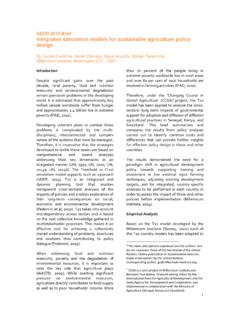Transcription of THE GATEKEEPER EFFECT The Impact of Judges …
1 THE GATEKEEPER EFFECTThe Impact of Judges admissibility Decisions on thePersuasiveness of Expert TestimonyN. J. Schweitzer and Michael J. SaksArizona State UniversityIn a pair of mock-trial studies of a possible GATEKEEPER EFFECT , our participantswere presented with a summary of a trial that included a piece of expertscientific evidence. The judge s decision was manipulated to admit the scientificevidence, as well as the quality of the evidence and the credibility of the were found to be less critical of and more persuaded by expertevidence when it was presented within a trial, compared with the same evidencepresented outside of a courtroom context. These findings suggest that, whenjudges allow expert testimony to reach the jury although the evidence is of lowquality, they imbue it with undeserved credibility.
2 Furthermore, no changes inparticipants perceptions of the evidence were found if the mock jurors wereexplicitly informed that the judge had evaluated the evidence, suggesting thatthe participants assumed that Judges normally review evidence before allowingit to reach the jury. In addition, implications for basic research are discussed, asthe moderating effects of a GATEKEEPER have not previously been considered byestablished models of :scientific evidence, experts, persuasion, Judges , jury decision -makingJudges in American courts have served as gatekeepers of evidence sincethe adversary process became dominant in the second half of the 18th century(Landsman, 1984). After the control of evidence gathering and presentationcame firmly into the hands of the parties attorneys, detailed rules of evidencedeveloped to regulate the offerings of these persuasive adversaries (Gallanis,1999).
3 The principal purpose of the rules of evidence, of course, is to facilitatethe exclusion of evidence from the jury s consideration. As even the mostcasual observer of courtroom procedures realizes, Judges are the decision -makers responsible for that recent years, the subject of judicial gatekeeping has been rejuvenated bya series of cases in which the United States Supreme Court has emphasized theresponsibility of Judges to filter proffered expert testimony. InDaubert Dow Pharmaceuticals(1993), the Court held the test of admission inthe federal courts to be essentially that of science: empirical verification ofN. J. Schweitzer, New College of Interdisciplinary Arts and Sciences, Arizona State Univer-sity; Michael J.
4 Saks, Sandra Day O Connor College of Law, Arizona State thank Darwyn Linder and Robert Cialdini for their assistance with the planning of theseexperiments and their comments on earlier versions of this concerning this article should be addressed to N. J. Schweitzer, New Collegeof Interdisciplinary Arts and Sciences, Arizona State University, Box 37100, MC3051,Phoenix, AZ 85069-7100. E-mail: Public Policy, and Law2009, Vol. 15, No. 1, 1 18 2009 American Psychological Association1076-8971/09/$ DOI: of expertise using sound research validity-based gate-keeping ofDaubertwas enlarged inKumho Tire v. Carmichael(1999), whichheld that all fields of purported expertise, regardless of what they were called, hadto pass the most appropriate tests of validity applicable to them or be refusedadmission.
5 InGeneral Electric v. Joiner(1997), the Court placed gatekeepingresponsibility squarely on the trial court, subject to only deferential appellatereview. Finally,Weisgram v. Marley Co.(2000) held that trial court gatekeepingwas such serious business that an appellate court could terminate a case altogether(without remanding it for further proceedings) if a party failed in its first attemptto obtain admission of expert evidence necessary to its case. This heightenedattention to the gatekeeping of expert testimony has, as of this writing, produced559 law review articles withDaubertin their titles, an additional 5,782 law reviewarticles that discuss or at least cite the case, and 5,219 news stories that mentionthe case by name (and presumably many others that discussDaubert sexistence,principles, or effects without naming it).
6 The psychological question asked by the experiments reported in this articleis whether expert testimony acquires additional persuasive Impact merely byvirtue of the fact that it has been admitted through a judicial filter. This presumes,of course, that jurors are aware that Judges serve as gatekeepers of evidence,something that appears to be common knowledge in American society, andperhaps made more salient in recent years by theDaubertquartet and continuingcontroversies over scientific evidence (Saks & Faigman, 2005).The practical problem is that, if the hypothesis is correct, Judges are inadver-tently placing their thumbs on the fact-finding scale, and jurors are givingevidence more weight than it would receive on its own merits.
7 Undesirable thoughthis might be when the admitted evidence is sound, consider the situation whenthe evidence is unsound. Judges will, from time to time, admit expert evidencethat is shaky or expertise that isfausse[false] and science that is junky, toborrow from Justices Harry Blackmun and Antonin Scalia, respectively. Whatmight be the consequence of letting bad science into the courtroom? Jurorsmight assume that all testimony put before them has passed the necessary testsestablished by the law. If false or misleading or unacceptably weak scientificexpert testimony nevertheless passes through the legal filter, and if the fact that ithas passed muster with the GATEKEEPER imbues it with unwarranted persuasivepower, then at the end of the day, judicial gatekeepers will have inadvertentlyaugmented the credibility of some evidence that ought not to have been admittedin the first specifically,Daubertsuggests that Judges examine (a) whether the principles underly-ing proffered expert (scientific) testimony are testable and have been tested, (b) whether themethodology of that testing was sound (usually tagged as the peer review and publication factor),(c)
8 What the results were of that testing (labeled aserror rates), (d) maintenance of standards by thefield using the proffered knowledge, (e) and whether the basis of the expert testimony was generallyaccepted, the central element ofFrye v. United States(1923). In addition to the federal courts, abouthalf the states have adopted some version of theDaubertpackage of admissibility rules, althougha number of states retaining a version of theFryetest include several large and legally importantstates, among them California, Florida, and New York. (Faigman, Kaye, Saks, Sanders, & Cheng,2008 [chap. 1]).2 SCHWEITZER AND SAKSThat Judges are not altogether well prepared to serve as gatekeepers ofscientific evidence, and that they do not always do the best job at it, has beendocumented and opined upon in a variety of ways and from a variety of present purposes, it should be sufficient to provide sources to which interestedreaders can refer ( ,Daubert v.)
9 Merrell Dow Pharmaceuticals, Inc.,1993[Chief Justice William Rehnquist expressing doubt that Judges can become the amateur scientists they need to become if they are to be reliable gatekeepers];Daubert v. Merrell Dow Pharmaceuticals, Inc.,1995 [Judge Alex Kozynski onremand expressing doubt that he or any judge can resolve disputes betweenexperts]; Development in the Law, 1995 ; Faigman et al., 2008 [many chaptersreviewing judicial opinions dealing with various scientific evidence topics];Foster & Huber, 1997; Gatowski et al., 2001; Gross, 1991; Kovera & McAuliff,2000; Moriarty & Saks, 2005; Risinger, 2000). A particularly interesting phe-nomenon is that Judges have been far more active in excluding the relativelystronger evidence offered in civil cases than they have been in excluding theweaker science that is offered in criminal cases (Dixon & Gill, 2002; Groscup,2004; Risinger, 2000; Saks & Faigman, 2005).
10 Related ResearchWe have found no research in the attitude change literature that addresses thepersuasive Impact of gatekeeping situations. Persuasion researchers, particu-larly those investigating the elaboration likelihood model (ELM) of persuasion(Petty & Cacioppo, 1986) have focused nearly exclusively on persuasive mes-sages that are delivered directly from the source to the target. In the case of thecourtroom, the judge acts as a moderator, allowing some messages to pass fromsource to target while blocking other messages. Thus, the considerable literatureon source credibility effects speaks to a different issue. Moreover, the messageitself is not altered by the judge making a judgment about it, although its meaningmight be.

